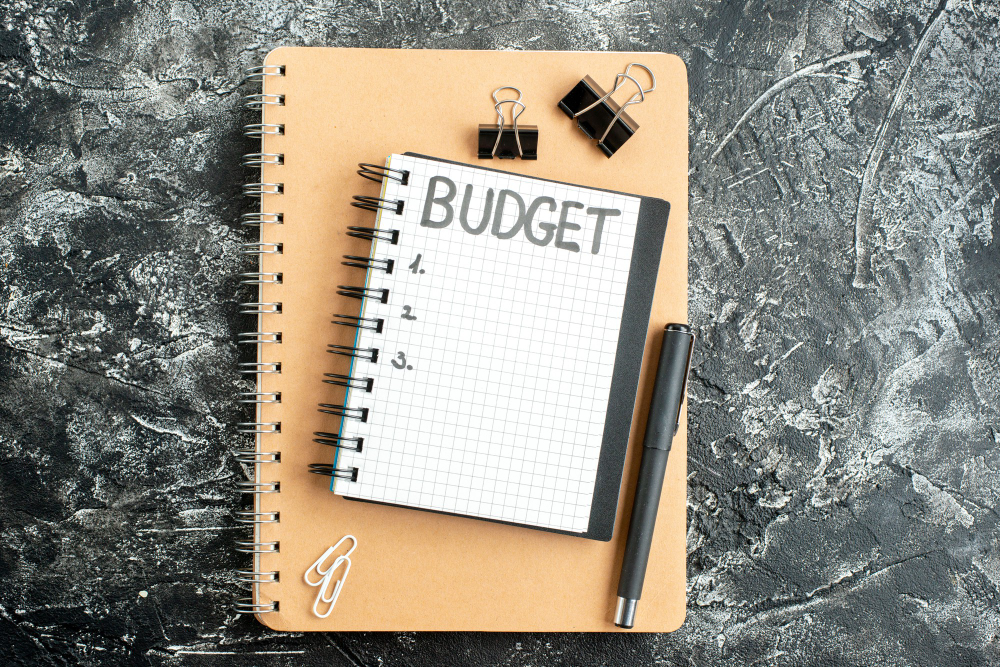Outline: What’s a Budget? | Roles of Budgets – Personal – Business | Why a Budget Is Important for Your Business | How to Create a Business Budget | Final Thoughts
As a business owner, it is vital to understand your finances well enough. Knowing how much you spend to keep your business afloat and how much you earn from it are key reasons why having a budget is important for your business.
A business budget isn’t a one-time thing or a once-in-a-year event. It’s best to keep a monthly or quarterly budget that helps you track the financials of your business operations.
In this article, we’ll talk about budgeting, its role in your personal and business lives, and why you should always have a budget for your business.
What Is a Budget?
A budget, in simple terms, is a financial plan that accounts for revenue and expenses over a set period. It can apply to a person, group of people or business. But it always has the same goal – accounting for income and expenditure to save or spend money more effectively.
Asides from tracking cash flow, a well-written budget helps with project planning and is often used to optimize your business’s short- and long-term goals.
The Role of a Budget in Your Business and Life
“What’s the budget?” Or “how much will that cost?” are two questions we are quick to ask others when told about a business idea; it’s easier to recommend budgeting to a friend while lacking one.
A budget plays a vital role in your personal life and business. It helps you to make better financial decisions, track your progress and achieve your goals in more ways than one. And if you’re trying to cut costs, it’s worth considering.
Here’s how a budget can help you in different areas of your life:
1. Personal Life
In your personal life, a budget can help you to make ends meet, save for a rainy day, and plan for your future. It also helps keep you in check, ensuring you don’t spend on things you don’t need and only live within your means.
Here are some ways your budget can work:
- Allocating money for specific expenses like rent, utilities, and groceries
- Tracking your spending to see what your money goes into
- Adjusting your spending habits to live within your means
- Saving for unexpected expenses or emergencies
- Planning for long-term goals like retirement
2. Business
A budget also plays a significant role in business as it provides a better understanding of your business’s revenue and expenditure. You’re bound to make better financial decisions and keep operations on track with a business budget.
Here are a couple of things a business budget helps with:
- Making informed decisions about where to allocate resources
- Planning for future expansion or contraction
- Keeping tabs on inventory levels
- Tracking spending to identify areas of waste
- Forecasting future growth

6 Reasons Why You Should Always Have a Budget for Your Business
Although a business budget has a lot to offer, not every business owner is keen on creating budgets for their business. Some see the process as too time-intensive or tedious, while others don’t see the need for one if they are already profitable.
However, there are several key reasons why having a budget is important for businesses of all sizes and industries.
Here are six of the most notable benefits of budgeting your business and why they should matter to you:
1. Insight Into Your Numbers
One of the first and most important advantages of budgeting is that it gives you a better understanding of your business’s finances.
Creating a budget forces you to look closely at your revenue, expenditure, and your business’s overall financial health. This can be incredibly enlightening, helping you identify issues and problems you may not have been aware of before.
2. Improved Cash Flow Management
Another benefit of budgeting is that it helps with better cash flow management. With a clear understanding of your revenue and expenditure, you can make informed decisions about when and how to spend your money.
3. Enhanced Decision-Making
As mentioned earlier, budgeting gives you a better understanding of your business finances. This, in turn, can lead to improved decision-making as regards budgeting your resources and planning projects. Moreover, it makes it easier and more confident to make decisions on money allocation.
4. Greater Clarity Around Future Goals
Developing a budget requires you to think about your long-term plans and how you can achieve them. This process of setting goals and planning for the future helps give you a greater sense of clarity about where you want your business to go and how to grow.
5. Enhanced Efficiency and Productivity
Another reason why a budget is important for your business is that it leads to improved efficiency and productivity in your business. A clear financial picture keeps you in check and helps you avoid spending money on unnecessary things. Instead, you get to focus on investing in areas with the most impact.
6. Increased Profitability
Last but not least, budgeting can help to improve your business’s bottom line. It’s easier to cut costs and increase revenue when you have a budget that yields informed financial decisions. Hence, a business with a budget is one with increased profitability and long-term success.
How To Create a Budget for Your Business
Sold on the benefits and ready to get started? Here are some helpful tips for those looking to venture into the world of budgeting.
1. Know Your Budget Type
While they have the same goal, not all budgets function similarly. There are several strategy approaches, each with its benefits and drawbacks. Two of the most popular types are:
Monthly Budgeting
Here, you track your income and expenditure for a month and make adjustments to ensure that you are not spending more than you are bringing in. A tried and true approach, this method can be very effective in keeping your finances on track.
Zero-based Budgeting
Here, you allocate every dollar you earn to specific expenses to have your income and expenditure balance out at the end of the month. Zero-based budgets are a great way to get a handle on your expenditure and ensure that you are not overspending.
2. Keep Tabs on Everything
The key to making the most of a budget and making the budgeting process easier is to keep track of everything. This means recording all of your income and expenditure, as well as any other financial transactions that you make.
There are several ways to do this, from using a simple spreadsheet to investing in budgeting software. Find what works best for you, and keep on top of it.
3. Make Adjustments as Needed
Budgets are not set in stone. They are fluid and adaptable; thus, if you realize your budget is not working as well as you had hoped, make the necessary adjustments.
Making adjustments may mean changing how you track your finances or altering your approach to budgeting altogether. The most important thing is to find what works best for you and your business.
Final Thoughts
While sitting down to create a budget feels like a huge ton of work, it’s not, and you don’t have to do it alone. A business budget is worth having because its benefits range from providing insights into your numbers to increasing profitability.
Now that you know why a budget is important for your business, it’s time to get busy and work up a budget that perfectly suits your business.










